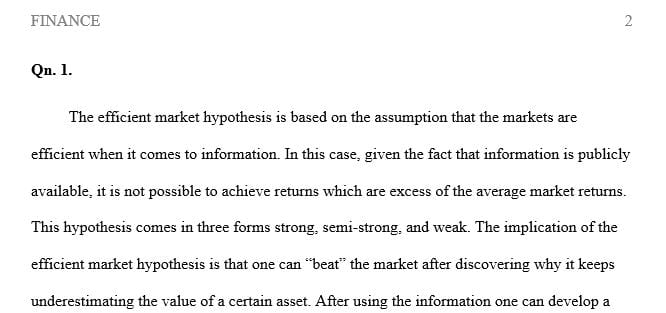What is the efficient markets hypothesis, what are its three forms and what are its implications
What is the efficient markets hypothesis, what are its three forms, and what are its implications?
2. Describe what the Capital Asset Pricing Model (CAPM) tells us and how to use it to evaluate whether the expected return of an asset is sufficient to compensate an investor for the risks associated with that asset.
3. Following is an excerpt from an article, “Risk and Reward,” in The Economist of October 20, 1990: Next question: is the CAPM supported by the facts? That is controversial, to put it mildly. It is a tribute to Mr. Sharpe [co-winner of the 1990 Nobel Prize in Economics] that his work, which dates from the early 1960s, is still argued over so heatedly. Attention has lately turned away from beta to more complicated ways of carving up risk. But the significance of CAPM for financial economics would be hard to exaggerate.
Summarize Roll’s argument on the problems inherent in empirically verifying the CAPM. What are some of the other “more complicated ways of carving up risk”?
Answer preview to what is the efficient markets hypothesis, what are its three forms and what are its implications
APA
303 words


